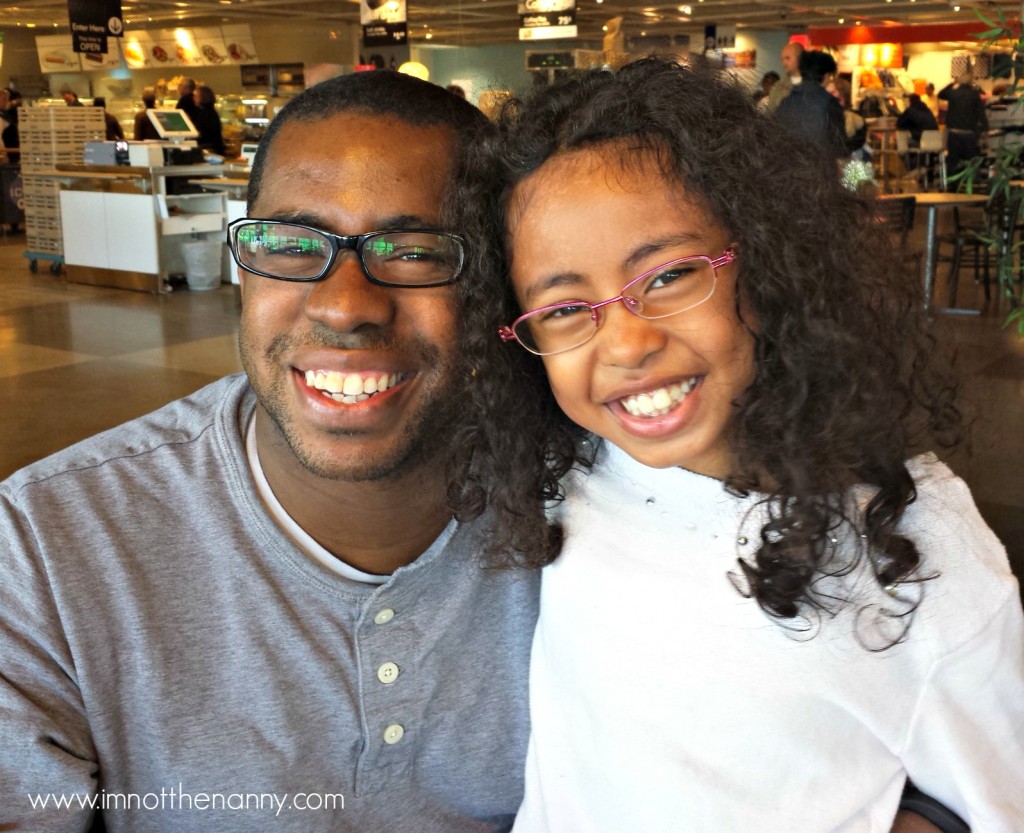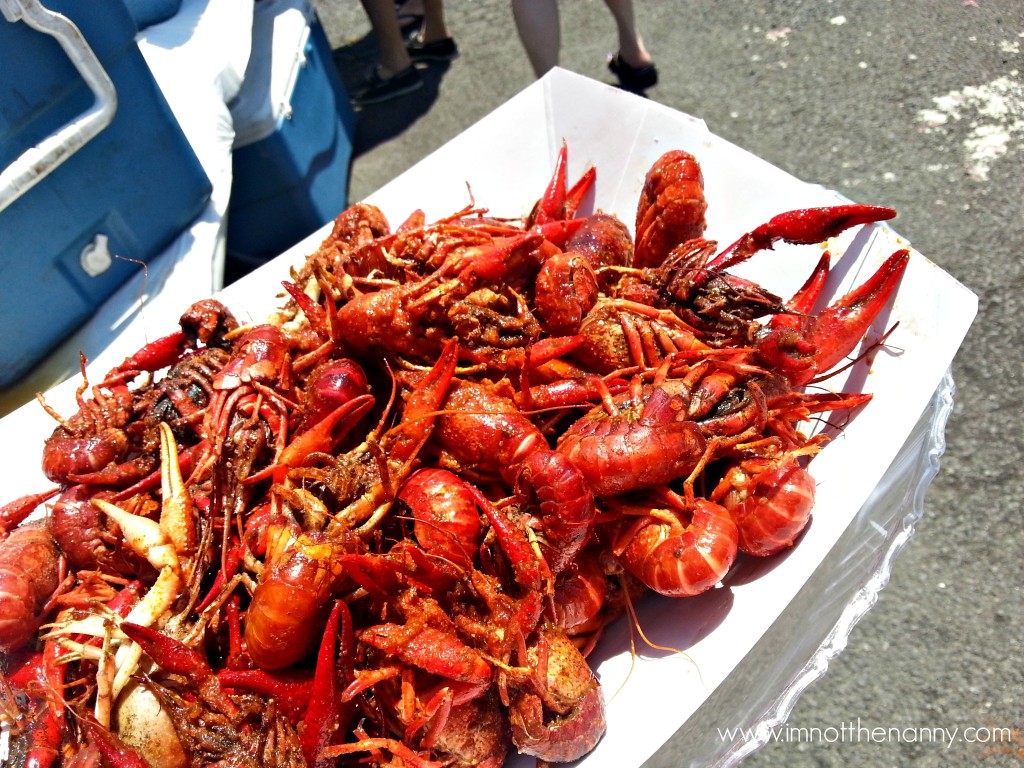
I always worry that, as the parent who is around the kids the most, I’m not exposing my kids to enough African American “culture.” My husband actually prefers the term black to African American. So what is black culture? I’ve had this discussion with my husband, my black friends, and friends whose significant others are black. The dilemma of many cultures of my biracial children.
In my younger days of living in Louisiana, black culture was associated with rap music, “ebonics,” and pants worn so low you wonder how they can walk around without accidentally showing off their religion. It’s hard to make that case now as your skin color doesn’t make you less likely to wear a belt or let your butt hang out of your pants.
In most countries, people don’t self-identify with skin color like Americans do, but they self-identify by their cultural background. My friend Stacey (aka Justice Fergie), who grew up in Canada, wrote a great post about being identified by culture versus race.
In the United States, race is the second box we check on our newborn’s paperwork, after male or female.
My husband hasn’t put any pressure on me about this. It’s all me. His Midwestern upbringing made his proper grammar stick out like a sore thumb when he moved to the South in his teens. Well, among the black kids anyway. Maybe I’m worried my children’s peers will force them to “choose” a race: Asian or black. No in between. If they choose black, will they be “black enough” to fit in? My mothering instinct wants to protect them from any possible hurt even if I know it’s impossible.
Those are the things that run through the mind of a parent with biracial children.
Usually I just shove these worries away and hope that I’m doing my best on this front. A couple of days ago, a light bulb went off.
Instead of focusing on race, I need to focus on culture.
It’s so obvious, but it wasn’t. As a Vietnamese American, I self-identified with being Vietnamese until someone told me (or I read it somewhere) that I was Asian. I wanted to belong to a group so badly that I didn’t question it. Sure, I’ll be Asian. I wanted to meet other people with straight black hair and yellow skin (that wasn’t my family) because our family was the only Asian family in our small Louisiana town.

I’m approaching this concept of black culture from the wrong direction. Instead of focusing on African American “culture”, we should focus on the culture my husband most identifies with: being a Louisianian.
Even though we both grew up there and we don’t want to raise our family in Louisiana, we have managed to pass on our home state’s rich culture. Mostly its food, but you can’t say Louisiana without talking about its food with its rich multicultural history.
In January our family will celebrate Tết , the Vietnamese Lunar New Year, and then a few weeks later we’ll make king cakes to celebrate Mardi Gras. The kids love eating beignets almost as much as they love slurping phở. They look forward to our college alumni association’s annual crawfish boil as much as we do. Thanks to his dad, Jaxson is a New Orleans Saints fan. He wears his Saints jersey on game days in support and begs to watch the highlights.
So the many cultures of my biracial kids are Vietnamese, Louisianian, but really, it’s American. Being American means claiming multiple cultures as our own and mixing together to celebrate what makes our country so unique.
With a background like that, they will definitely be foodies when they grow up.
What cultures do you celebrate in your family?


My husband and I both self identify as black, so that is the culture, tradition and history we pass on to our children. We have taught our children that black isn't simply a skin color, hair type or grammatical style, it is much more than all that.
I think with bi-racial children we get to see, if we are fortunate what America should be a little bit of more than one thing. America should not be a melting pot where everything blends together and the dominate flavor overpowers the meal. Instead, America is best when it is a stew where there are all kinds of flavors, cultures and identities that are present in the mix. In a stew, all the ingredients can be identified and appreciated. With a stew, the parts make the whole better.
My recent post Reflect – What Have You Learned From Your Business
Janeane, I'm curious to hear what your definition of black culture is. Does it mesh with your husband? Did you grow up in the same regional area? I'm fascinated by this.
The important thing Kim is that you are a thinking mother and you have a thinking husband. That is the gift you will pass on to your children. I thought force feeding answers to these type of questions was my job as a younger woman. Of course my son is a young man now and I see that the gift of trusting one's own mind to come to conclusions is what is important to pass on.
My recent post How Are You Giving Back on #GivingTuesday™
Patricia, sometimes I do over think things! However I want to be able to give my kids the foundation to make their own choices once they are able.
Having young children we are just now really starting to teach them about African American history, culture, and tradition. I think its so important to start early so children can be proud of who they are and the accomplishments achieved before them. We also teach them to embrace other cultures and that you can celebrate your culture without disrespecting someone else's and that our country is great because we live somewhere that we are free to do just that.
My recent post Dijon-Ranch Club Wraps
Being of French Canadian descent and living so near Canada when growing up we'd celebrate our heritage by having two thanksgivings. It always worked out so well as the Canadian Thanksgiving was just before the majority of our elders would head south for the winter.
My recent post Finally the Lab Results are in
Two Thanksgivings sound awesome! What are Canadian Thanksgivings like?
Interesting post. I'm a Caucasian of primarily British Celtic descent who lives in California and identifies more as a Californian than an American (although I've taken an interest in more traditional American foods and music, such as bluegrass, recently). I've been exploring Welsh/Irish/Scottish cultures for the past few years with a great deal of interest. My wife is from Taiwan (which is a whole amalgamation of cultures itself). In the middle of this is our 15-month-old son (who has a Welsh first name and a Chinese middle name); he also holds two passports. I figure he will need to find himself within all that.
Both of my kids have a western first name and a Vietnamese middle name. It was tough to find a Vietnamese name that wasn't too hard for most people to pronounce, but I wanted to honor both of our cultures that way.